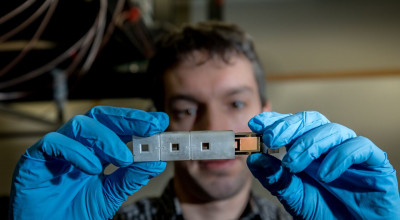
![]() Andrew Stevens MS (pictured), Jon Duke MD, and Richard Boyd Ph.D. secured the Outstanding Poster Presentation Award at the 2023 Council of State and Territorial Epidemiologists Annual Conference.
Andrew Stevens MS (pictured), Jon Duke MD, and Richard Boyd Ph.D. secured the Outstanding Poster Presentation Award at the 2023 Council of State and Territorial Epidemiologists Annual Conference.
Their winning project, “Automated Extraction of Social Determinants of Health from Electronic Health Records,” addresses the challenge of extracting crucial social determinants of health (SDoH) data from electronic health records (EHRs).
The researchers are all members of GTRI. Stevens is a Research Engineer I, Duke is a Principal Research Scientist in ICL, and Boyd is a Senior Research Scientist. All are affiliated with the Health Emerging and Advanced Technologies (HEAT) Division of GTRI's Information and Communications Laboratory (ICL).
The team developed an FHIR-based prototype that automates the extraction of SDoH information from clinical notes using ClarityNLP’s custom modules. This prototype successfully retrieved clinical notes via FHIR, processed them through ClarityNLP, and converted findings into structured codes adhering to United States Core Data for Interoperability guidelines.
The system efficiently extracted SDoH details like housing status, education, employment, primary language, and immigration status, showcasing its potential in enhancing patient and population analyses in public health. Future plans involve expanding the system to cover additional SDoH categories as defined by the Gravity Project, solidifying its impact on health care and public health initiatives.
The CSTE Annual Conference, held recently in Salt Lake City, Utah, connected more than 2,500 public health epidemiologists from across the country to meet and share their expertise in surveillance and epidemiology as well as best practices in a broad range of areas, including informatics, infectious diseases, substance use, immunizations, environmental health, occupational health, chronic disease, injury control, and maternal and child health.





